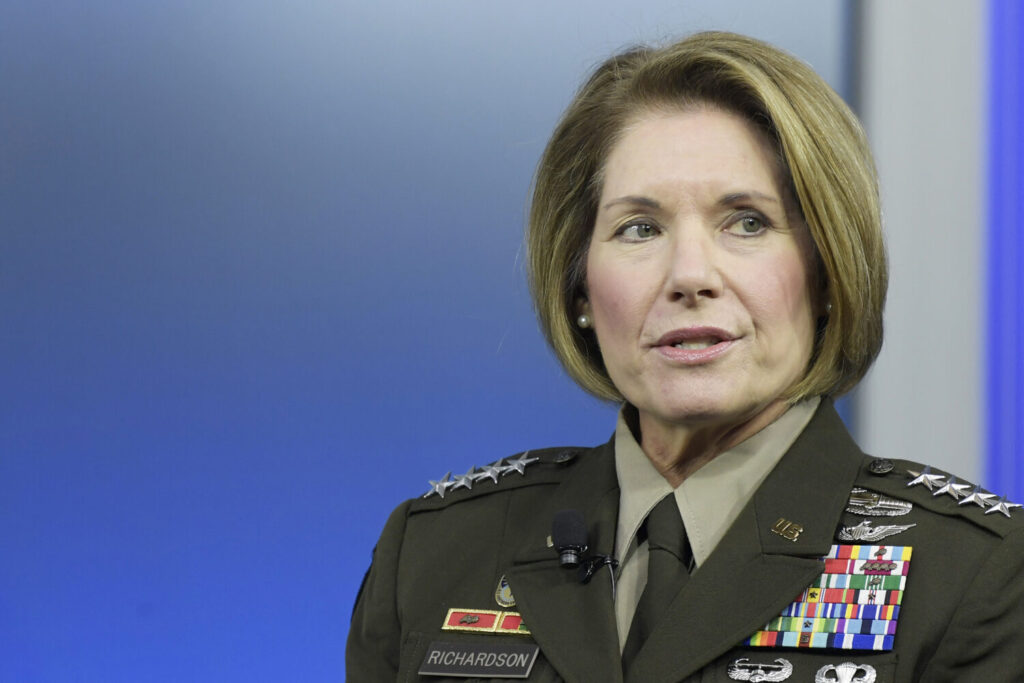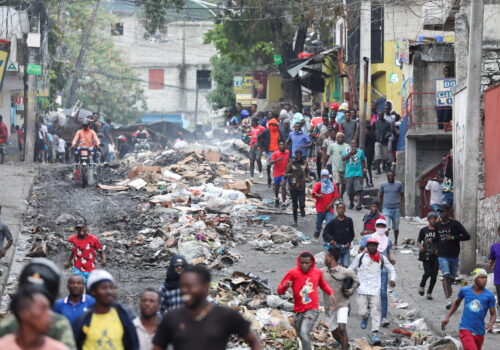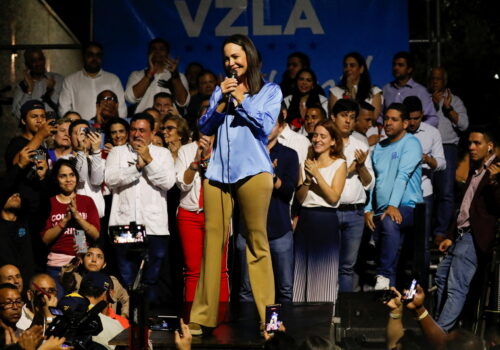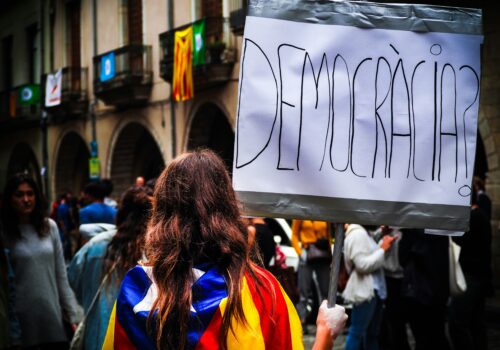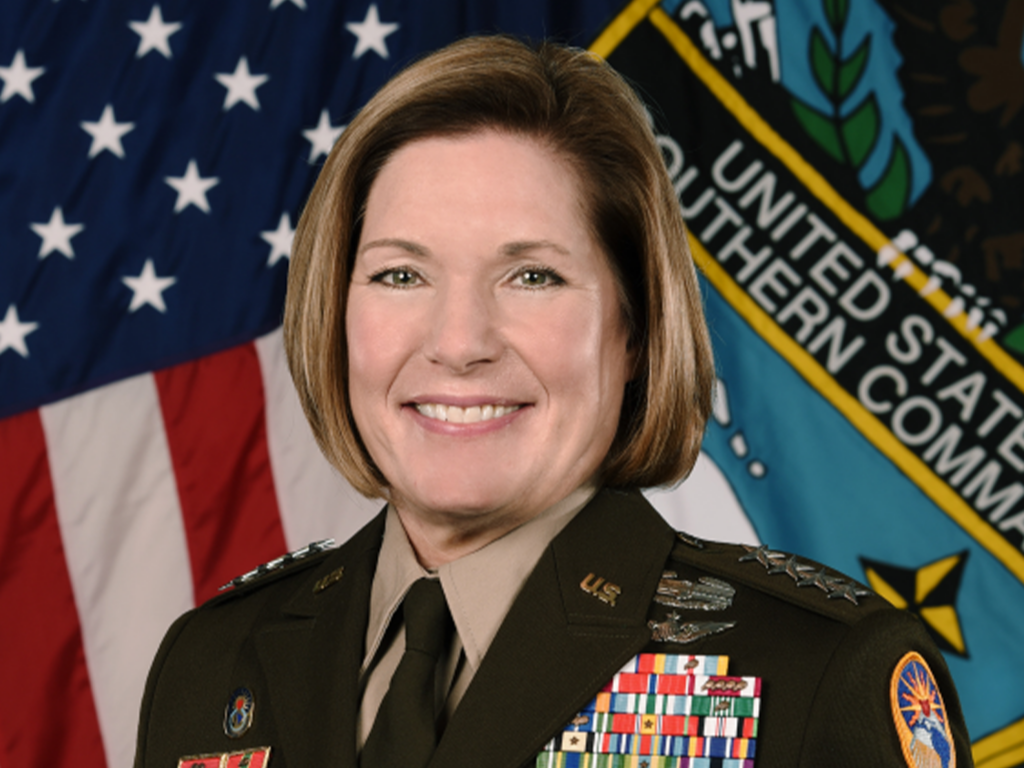
Gen. Laura Richardson on what an international response to Haiti might look like
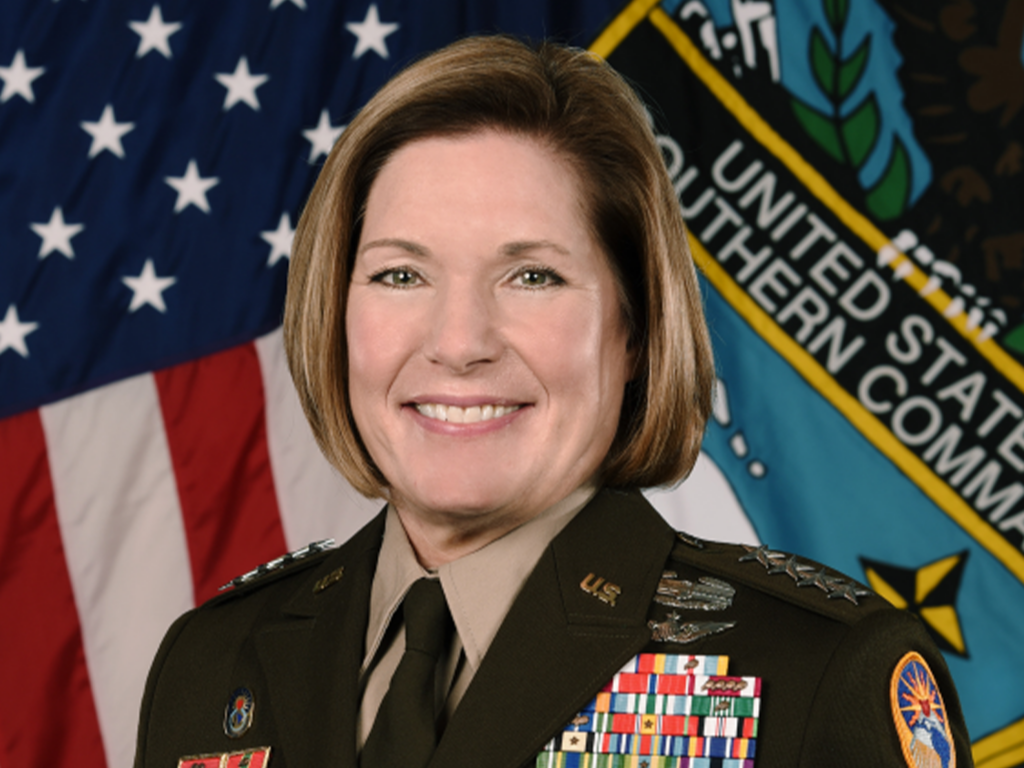
Watch the event
The United States isn’t ruling out deploying military forces to Haiti in response to the country’s crisis—as long as such a measure is part of an “international solution” that incorporates Haiti’s perspective, said General Laura Richardson, commander of US Southern Command (SOUTHCOM).
“We wouldn’t discount that at any time,” she said at an Atlantic Council Front Page event on Tuesday hosted by the Adrienne Arsht Latin America Center and the Scowcroft Center for Strategy and Security. “We are prepared if called upon by our State Department and by our Department of Defense.”
But while the United States isn’t currently planning to put boots on the ground, Richardson clarified, SOUTHCOM has a wide range of contingency plans that it is responsible for maintaining. For example, to prepare for potential mass migration from Haiti, Richardson said that SOUTHCOM readied its naval station in Guantanamo Bay, Cuba, to process a possible influx of migrants.
“We want to be able to do exactly what’s right and humane and be able to take care of populations that are trying to escape,” she said.
Richardson said that it is important to ready these plans as the situation continues to evolve in Haiti. Meanwhile, she said that the US State Department is working with the fifteen-member Caribbean Community and Haitian leaders to get a transitional presidential council in place—which will pave the way not only for the selection of an interim prime minister but also for the deployment of a Kenya-led international force to restore security.
Below are more highlights from Richardson’s conversation with Politico National Security Reporter Alexander Ward, which touched upon challenges seen in other countries around SOUTHCOM’s area of responsibility and China’s influence in the region.
Causes for concern
- Last month, satellite images showed the Venezuelan military bolstering its presence near the border with Guyana. Richardson reiterated the United States’ support to Guyana, saying that the United States is continuing “all of our activities, our operations, activities, and investments,” with the country and that it is important for its allies to come together and “to show strong support for Guyana in this situation.”
- With Ecuador now in a state of emergency after an escalation of violence between the government and criminal groups, Richardson said the United States has “doubled down” on its operations and activities there and has delivered emergency security equipment—it recently donated a C-130 military transport aircraft that is on the way. “As they wrestle with those hard challenges and security and instability, we have to continue with our economic investment,” she said.
China stepping in
- Richardson touched upon China’s rising influence in the Panama Canal, a Chinese military-run space station in Argentina, and reports last year that China is enhancing its spy capabilities in Cuba. “What’s happening in Latin America and the Caribbean is not new,” Richardson said. “It’s not new to the globe, and it’s not new to [China’s] . . . vision and strategy.”
- She argued that China has noticed the vast resources available in Latin America and the Caribbean—and also the relative vulnerability of the countries there, which are “still digging out” from the economic impact of COVID-19 and the “insecurity and instability” created by organized crime. “There’s not one country that’s being spared from all the challenges from the transnational criminal organizations.”
- Richardson noted that when China makes agreements with countries in Latin America and the Caribbean, such as within the Belt and Road Initiative, they’re often “tit for tat” and accompanied by demands such as not recognizing Taiwan. “There’s always a hook,” she said.
The counteroffer from “Team USA”
- With China increasing its presence in the region, Richardson said that the United States is sharing information with partner countries about China’s aims and activities so that they, in turn, can make their own decisions about working with Beijing.
- “We don’t do things for strings attached; we don’t have the fine print on things,” Richardson said. “We do it because we’re a like-minded democracy . . . and we would like this region to remain free, secure, and prosperous.”
- Richardson also called upon US companies to offer competitive alternatives to China’s critical-infrastructure projects in the region. “We’re not competing as much as we should,” she said. “Strategic competition is alive and well in the hemisphere. But if you’re going to compete, you’ve got to be on the ground. You’ve got to have your jersey on. You’ve got to have your number. You’ve got to be out there competing.”
- The general admitted that the United States “could have done a little bit better” in paying attention to the region in recent years. “Certainly, when there are crises that require our attention in other parts of the world, that’s where the focus is,” she said. But “we can’t just focus on one or two places. We have got to continue to focus on our partners in the hemisphere that we’re part of.”
Katherine Walla is an associate director on the editorial team at the Atlantic Council.
Watch the full event
Further reading
Mon, Mar 18, 2024
Addressing Haiti’s turmoil starts with its Caribbean neighbors—and US and Canadian support
New Atlanticist By Jason Marczak, Wazim Mowla
A long-term approach is needed in which Caribbean leaders are in the driver’s seat, while Washington and Ottawa help to offset the costs.
Wed, Mar 13, 2024
Venezuela’s opposition is challenging Maduro in the next election. The only question is how.
New Atlanticist By Geoff Ramsey
With leading candidate María Corina Machado barred from Venezuela’s July 28 presidential election, who will the opposition to Nicolás Maduro support?
Tue, Mar 5, 2024
The future of democracy in the Americas
Report By Breana Stanski and Diego Area
The Democracy and Governance commitment at the Ninth Summit of the Americas marked an imperative platform for strengthening the region’s democratic values and institutions.
Image: US General Laura J. Richardson delivers remarks about Haiti during a conversation on March 19, 2024 at the Atlantic Council Washington DC. Photo by Lenin Nolly/Sipa USA.
